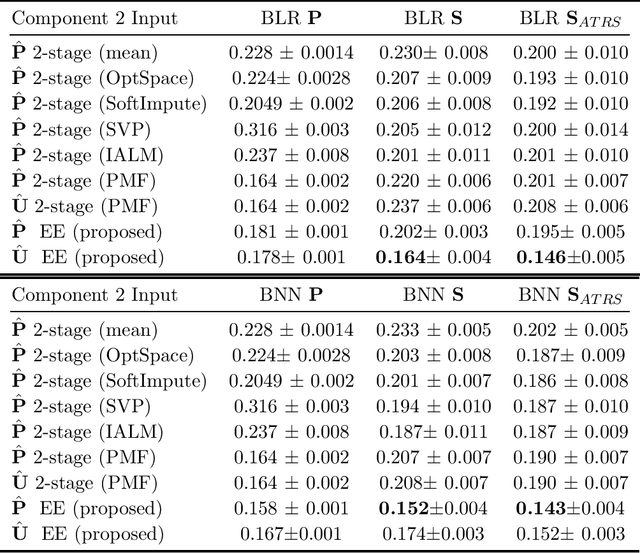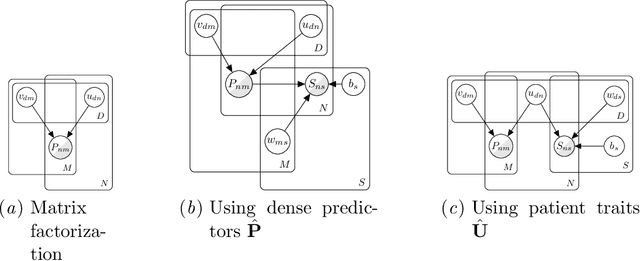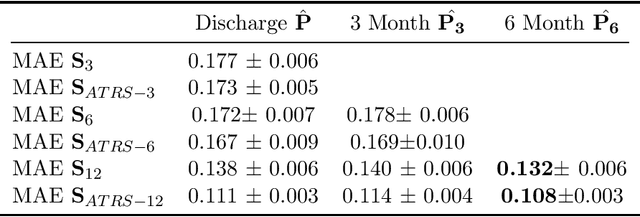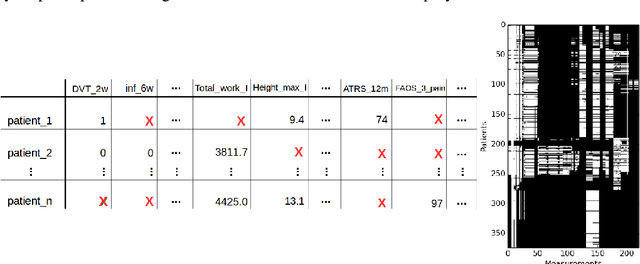Paul Ackermann
Simultaneous Measurement Imputation and Outcome Prediction for Achilles Tendon Rupture Rehabilitation
Sep 08, 2018



Abstract:Achilles Tendon Rupture (ATR) is one of the typical soft tissue injuries. Rehabilitation after such a musculoskeletal injury remains a prolonged process with a very variable outcome. Accurately predicting rehabilitation outcome is crucial for treatment decision support. However, it is challenging to train an automatic method for predicting ATR rehabilitation outcome from treatment data, due to a massive amount of missing data in the data recorded from ATR patients, as well as complex nonlinear relations between measurements and outcomes. In this work, we design an end-to-end probabilistic framework to impute missing data entries and predict rehabilitation outcomes simultaneously. We evaluate our model on a real-life ATR clinical cohort, comparing with various baselines. The proposed method demonstrates its clear superiority over traditional methods which typically perform imputation and prediction in two separate stages.
Causal discovery in the presence of missing data
Jul 11, 2018



Abstract:Missing data are ubiquitous in many domains such as healthcare. Depending on how they are missing, the (conditional) independence relations in the observed data may be different from those for the complete data generated by the underlying causal process and, as a consequence, simply applying existing causal discovery methods to the observed data may lead to wrong conclusions. It is then essential to extend existing causal discovery approaches to find true underlying causal structure from such incomplete data. In this paper, we aim at solving this problem for data that are missing with different mechanisms, including missing completely at random (MCAR), missing at random (MAR), and missing not at random (MNAR). With missingness mechanisms represented by missingness Graph (m-Graph), we analyze conditions under which addition correction is needed to derive conditional independence/dependence relations in the complete data. Based on our analysis, we propose missing value PC (MVPC), which combines additional corrections with traditional causal discovery algorithm, in particular, PC. Our proposed MVPC is shown in theory to give asymptotically correct results even using data that are MAR and MNAR. Experiment results illustrate that the proposed algorithm can correct the conditional independence for values MCAR, MAR and rather general cases of values MNAR both with synthetic data as well as real-life healthcare application.
Bridging Medical Data Inference to Achilles Tendon Rupture Rehabilitation
Dec 07, 2016

Abstract:Imputing incomplete medical tests and predicting patient outcomes are crucial for guiding the decision making for therapy, such as after an Achilles Tendon Rupture (ATR). We formulate the problem of data imputation and prediction for ATR relevant medical measurements into a recommender system framework. By applying MatchBox, which is a collaborative filtering approach, on a real dataset collected from 374 ATR patients, we aim at offering personalized medical data imputation and prediction. In this work, we show the feasibility of this approach and discuss potential research directions by conducting initial qualitative evaluations.
 Add to Chrome
Add to Chrome Add to Firefox
Add to Firefox Add to Edge
Add to Edge